
Stroke of Fire explores athletes’ full and limited evolution within skiing and the pure joy that manifests from that process. The choice to enter this world is a spark, and with every new experience, the fire grows. With more knowledge comes more exploration, both physically and geographically, which helps to understand what those raw experiences connected with nature do for the soul.
You May Also Like

From the onset of the AIDS epidemic, author Larry Kramer emerged as a fiery activist, an Old Testament-style prophet full of righteous fury who denounced both the willful inaction of the government and the refusal of the gay community to curb potentially risky behaviors. Co-founder of both the service organization Gay Men’s Health Crisis and the direct action protest group ACT UP, Kramer was vilified by some who saw his criticism to be an expression of self-hatred, while lionized by others who credit him with waking up the gay community — and, eventually, the government and medical establishment — to the devastation of the disease.

Documentary filmmaker Amy Berg investigates the life of 30-year pedophile Father Oliver O’Grady and exposes the corruption inside the Catholic Church that allowed him to abuse countless children. Victims’ stories and a disturbing interview with O’Grady offer a view into the troubled mind of the spiritual leader who moved from parish to parish gaining trust … all the while betraying so many.

“The Life and Death of Owen Hart” chronicles the short but eventful life of pro-wrestling superstar Bret “Hitman” Hart’s brother Owen Hart, May 7, 1965 – May 23, 1999.
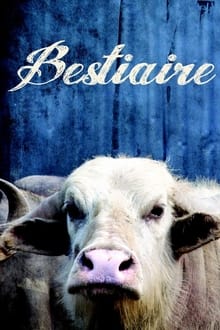
A popular sensation in medieval Europe, bestiaries were catalogs of beasts featuring exotic animal illustrations, zoological wisdom, and ancient legends. The documentary unfolds like a filmic picture book where both humans and animals are on display. As we observe them, they also observe us and one another, invoking the Hindu idea of “darshan”: a mutual beholding that initiates a shift in consciousness.

When a courageous young woman and a radical lawyer discover a pattern of illegal involuntary sterilizations in California’s women’s prison system, they take to the courtroom to wage a near-impossible battle against the Department of Corrections. With a growing team of investigators inside prison working with colleagues on the outside, they uncover a series of statewide crimes – from dangerously inadequate health care to sexual assault to coercive sterilizations – primarily targeting women of color. But no one believes them. This shocking legal drama captured over seven years features extraordinary access and intimate accounts from currently and formerly incarcerated women, demanding our attention to a shameful and ongoing legacy of eugenics and reproductive injustice in the United States.
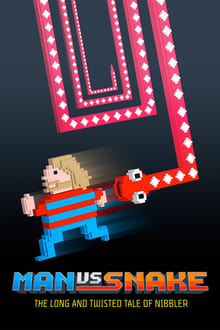
1984. One shiny quarter. 44.5 hours of continuous play. The race to be the first gamer in history to score one BILLION points. Until recently, Timothy McVey (not the terrorist) thought he had — for all these years — held the world record on Nibbler. Note: a Nibbler cabinet will be available in the lobby for the duration of Fantastic Fest for attendees to attempt to break the current world record.

An in-depth exploration of a seminal moment in DC music history (circa 1976 to 1984) and the rise of harDCore. The film is made up of a mix of rare archive material, conversational interviews, and a collage editing style. Features early DC punk and hardcore bands like Bad Brains, Minor Threat, Slickee Boys, The Faith and more.
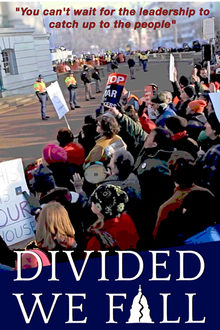
In the spring of 2011 Wisconsinites staged one of the largest sustained protests in US history. Tens of thousands of people from around Wisconsin converged on the capitol for almost two weeks to oppose newly elected Governor Scott Walker’s signature legislation to effectively end collective bargaining for public sector workers.
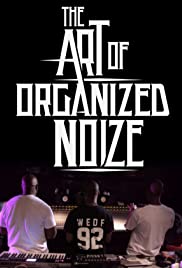
Organized Noize shaped the landscape of Hip Hop music with a distinct sound created in the confines of a dungeon. They’re responsible for the careers of Outkast, CeeLo, Goodie Mob, and the Dungeon Family. This is the story of the Art of Organized.

This film reveals some of Madagascar’s secretive and rarely filmed inhabitants, from the apex predator, the fossa, to the aye aye – possibly the weirdest creature on earth.
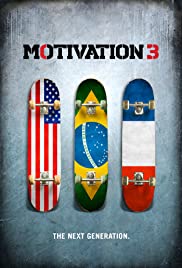
Following up on the first two installments about SLS and Chris Cole, The Motivation 3 is coming soon. It will focus on Tampa Am and how that can potentially impact a young skaters career. Starring Dashawn Jordan, Zion Wright, Aurelien Giraud, and Lucas Alves, and directed by Adam Bhala Lough, this is certainly not to be missed.
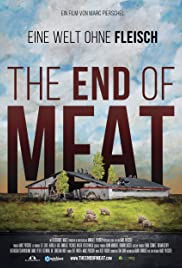
Although evidence of meat consumption’s negative impact on the planet and on human health continue stacking up as animal welfare is on the decline, humanity’s love affair with hamburgers, steaks, nuggets and chops just doesn’t end. In The End of Meat, filmmaker Marc Pierschel embarks on a journey to discover what effect a post-meat world would have on the environment, the animals and ourselves. He meets Esther the Wonder Pig, who became an internet phenomenon; talks to pioneers leading the vegan movement in Germany; visits the first fully vegetarian city in India; witnesses rescued farm animals enjoying their newly found freedom; observes the future food innovators making meat and dairy without the animals, even harvesting “bacon” from the ocean and much more. The End of Meat reveals the hidden impact of meat consumption; explores the opportunities and benefits of a shift to a more compassionate diet; and raises critical questions about the future role of animals in our society.